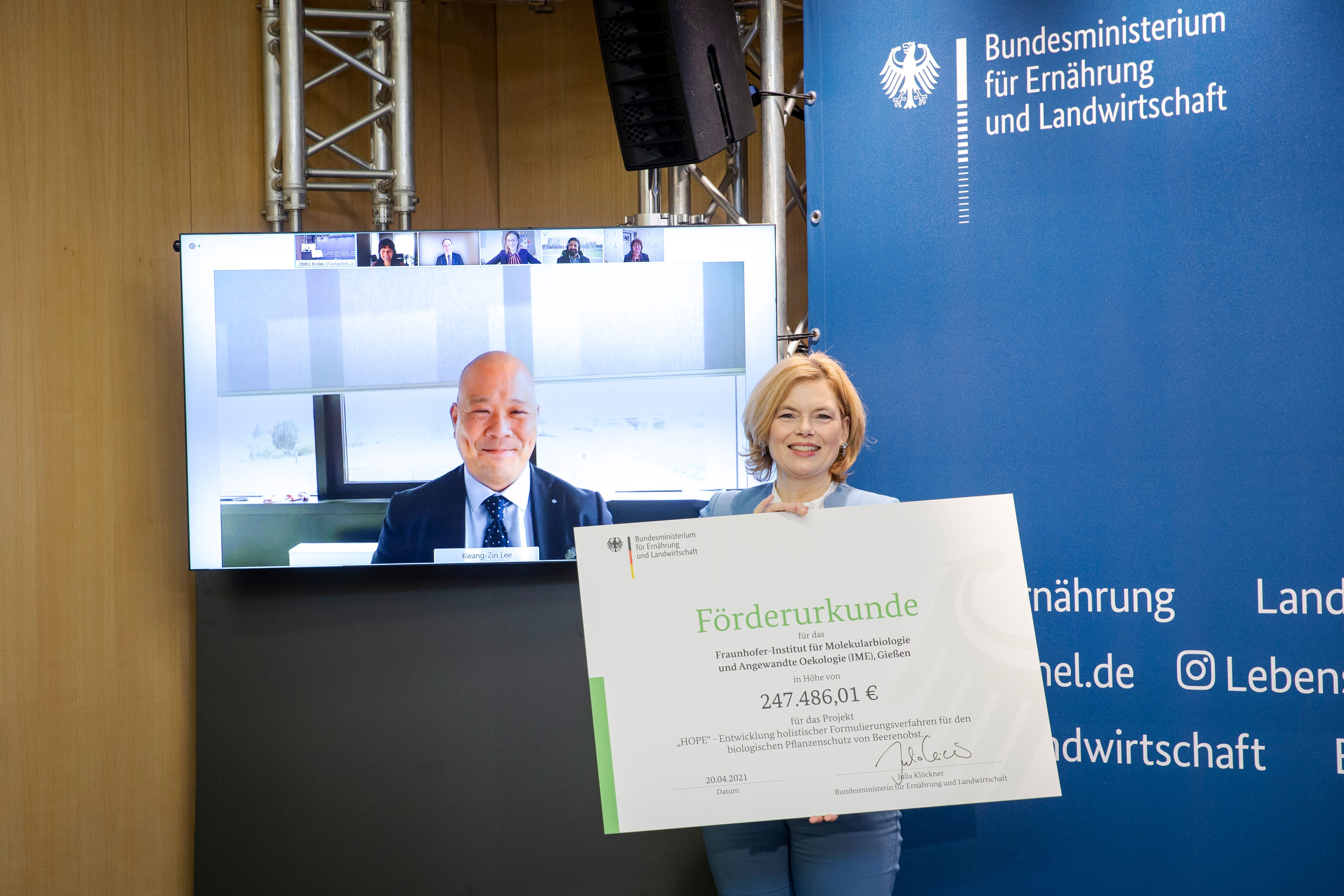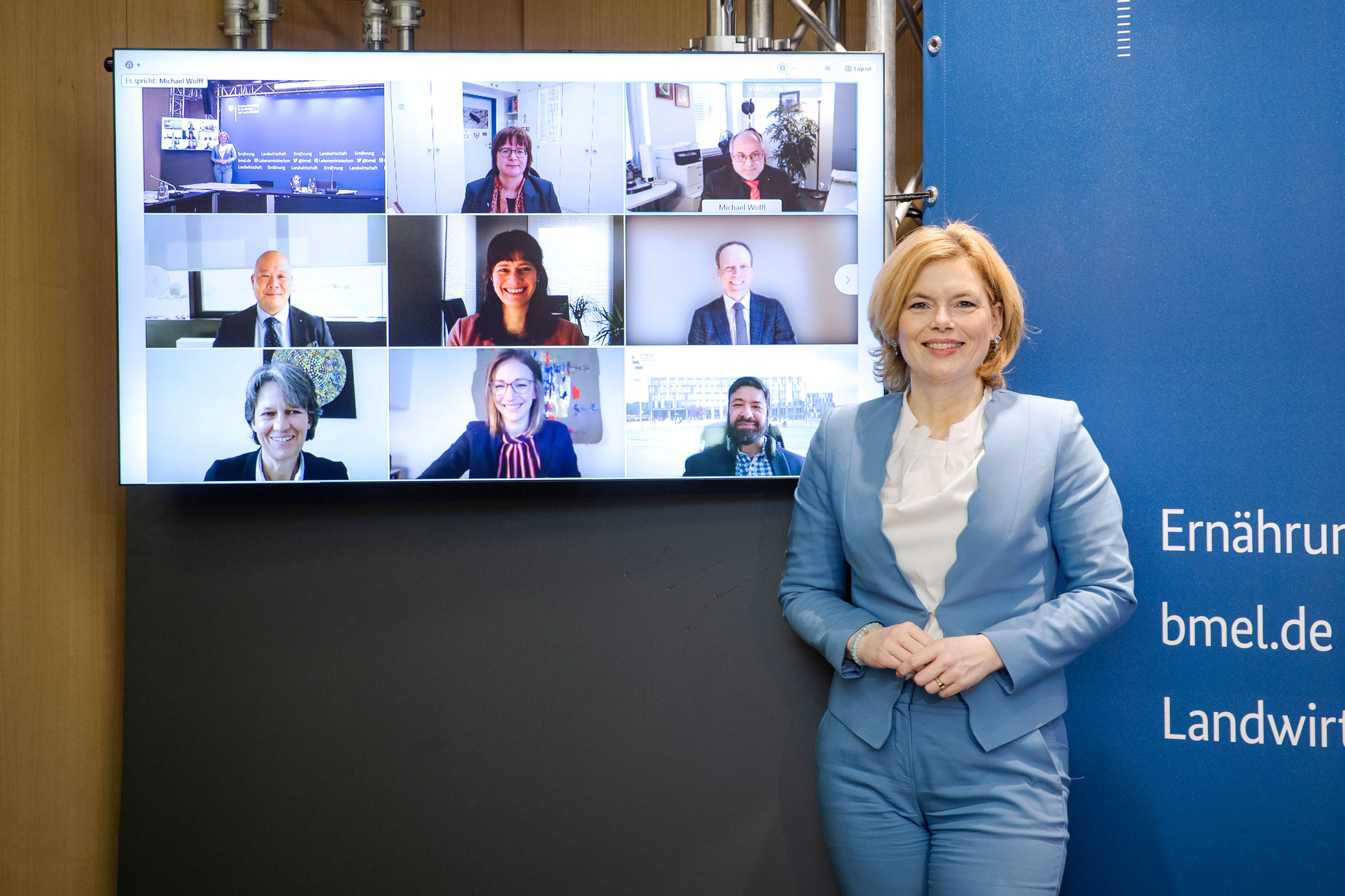Federal Minister Klöckner presents funding certificate to Fraunhofer IME
Within the framework of a virtual meeting, Dr. Kwang-Zin Lee accepted the grant for the joint project "HOPE" of around 250,000 euros for the Bioresources Branch of the Fraunhofer Institute for Molecular Biology and Applied Ecology IME.
In order to bring environmental protection and plant protection together, the Federal Minister of Food and Agriculture, Julia Klöckner, and her ministry are investing heavily in researching and developing biological plant protection products. “Our goal is to keep reducing the use of crop protection products while safeguarding harvests,” says the federal minister. “An important building block in this is research into biological alternatives. We are continuing to drive this forward intensively with the current funding program. As few crop protection products as possible, as many as necessary - that's what I'm all about. With a sense of proportion and on the basis of facts and scientific findings.”
On April 20, Klöckner handed over the first grant notifications for the HOPE joint project – “Development of holistic formulation methods for biological plant protection of soft fruit” - with total funding of around 843,000 euros.
New and environmentally friendly strategies for plant protection
The object of the research project is the development of formulations for the biological plant protection of blueberries with the aim of developing an effective spray application based on a novel virus formulation against the cherry vinegar fly, whose larvae damage plant roots. The beetle larvae are to be specifically attracted by an attractive formulation based on a granulate or capsule and killed by a specific insect-pathogenic fungus formulated therein.
Dr. Kwang-Zin Lee, Department Head of Pest and Vector Insect Control at Fraunhofer IME's Bioresources Branch, accepted the grant certificate of approximately 250,000 euros as part of a virtual meeting. “Insect pests are responsible for up to 30 percent of global crop loss,” said Dr. Lee, “Our mission is to develop innovative and sustainable strategies to become independent of chemical pesticides in the long term.”
In addition to environmentally friendly strategies for plant protection, the scientists at the Fraunhofer IME's Bioresources Branch are also looking for sustainable solutions for the food and feed industries and for active ingredients from which new antibiotics can be developed. At the end of last year, a new research building was opened at the site of Gießen, where a globally unique centre for the development of bioresources is now to be established.
Project participants are:
- Bielefeld University of Applied Sciences as coordinator, Bielefeld Institute for Applied Material Sciences (BIfAM)
- BIOCARE Gesellschaft für biologische Schutzmittel mit beschränkter Haftung, Dassel
- Firma Geohumus GmbH, Frankfurt am Main
- Fraunhofer Institute for Molecular Biology and Applied Ecology IME, Gießen
- Technical University of Central Hesse, Giessen
- Spargel und Beerenanbau Winkelmann GmbH & Co. KG, Rahden
 Fraunhofer Institute for Molecular Biology and Applied Ecology IME
Fraunhofer Institute for Molecular Biology and Applied Ecology IME

